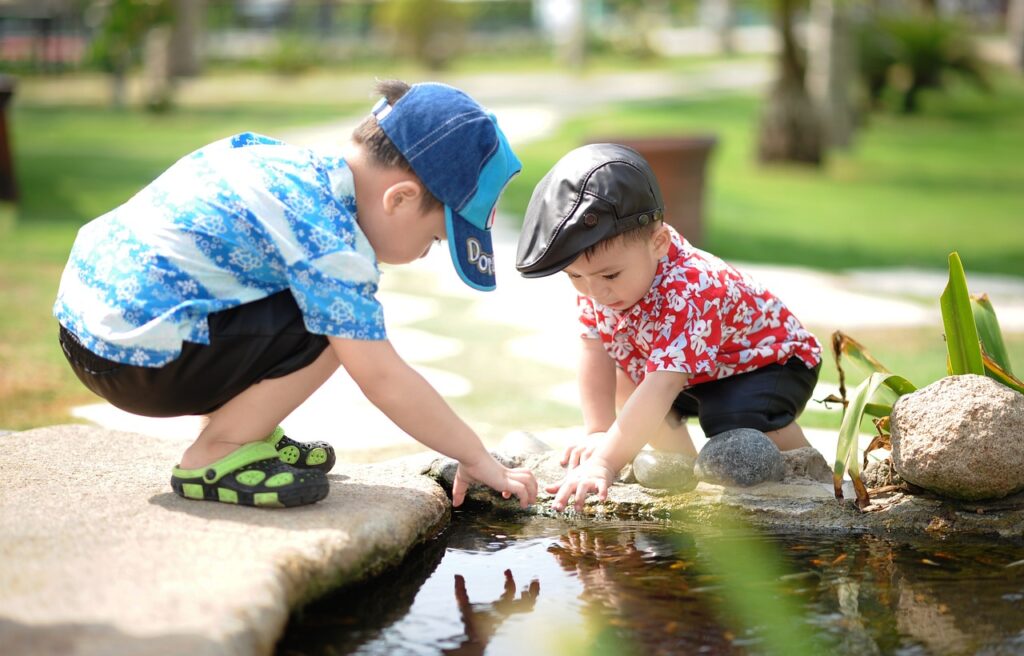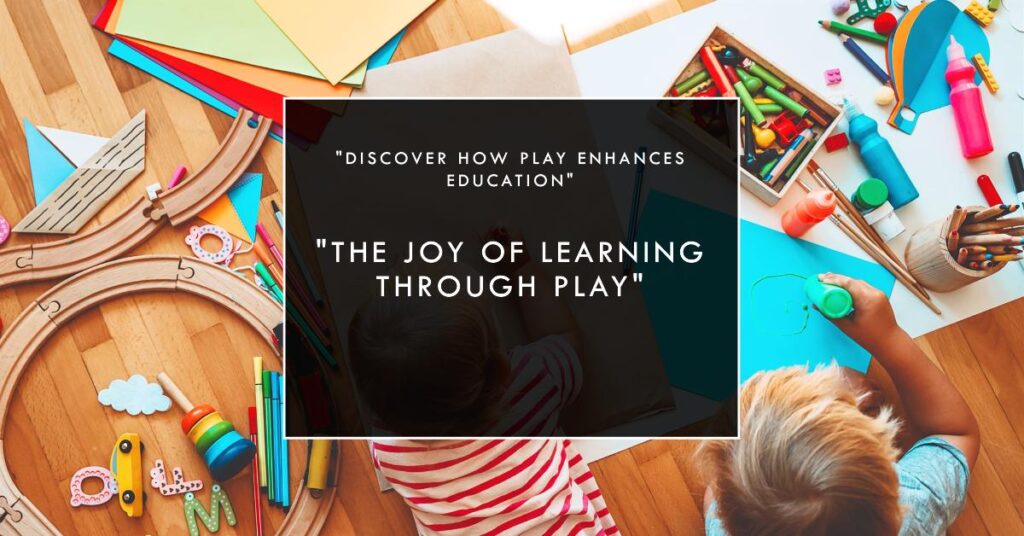Play-based learning is necessary because it connects with your child’s curiosity, making the time they spend learning very playful. While playing, kids begin to develop their motor and creative skills, as well as enhance their critical thinking and problem-solving skills. The approach helps children build social interactions and empathy, both essential to their emotional development. Besides that, it enhances resilience and self-esteem to enable kids to pursue what they are interested in without being held back. Ultimately, play fosters a love of learning that can last a lifetime, laying the foundation for later academic success. Interested in learning more about how play can impact many areas of development for children? You’ll find even more insights ahead.
Benefits of Play-Based Learning
When you consider the many ways in which play-based learning benefits children, you begin to realize that it is much more than mere fun; it is essential for their development. Through playful exercise, large motoric skills are developed whereby kids get to perfect their coordination and physical abilities while having a lot of fun.
As you watch them negotiate playgrounds or build with blocks, you’re witnessing their growing independence and self-confidence.
Play-based learning also enhances academic confidence. When children explore concepts through play, they become more engaged and motivated learners. This environment nurtures problem-solving skills, encouraging them to tackle challenges and find solutions on their own. Cognitive skills are stimulated as they navigate these playful challenges, enhancing their critical thinking abilities. Additionally, play-based learning integrates play as a core aspect of human development, further enriching their learning experiences. A traineeship in early childhood education can provide practical insights into implementing play-based learning, ensuring that children thrive in environments designed to support their holistic growth.
While playing, they learn to communicate effectively and collaborate with peers, which bolsters their emotional intelligence and empathy.
Play also fosters a sense of identity and self-discovery. Children are free to be themselves and explore their interests, developing a growth mindset that embraces challenges as opportunities.
With each playful experience, they not only prepare for academic success but also build resilience, crucial traits for maneuvering life’s ups and downs.
In the end, it lays a very solid foundation for lifelong learning and personal growth.
Cognitive Development Through Play
Countless studies have identified the important contribution that play makes to the processes of cognitive development, noting that it significantly enhances learning in children. Children do not simply have fun while they are playing; they also work out their critical thinking while trying to get out of a situation and plan their actions. Puzzles and games promote problem-solving activities, encouraging children to think critically and adjust their methods whenever an obstacle arises.
Moreover, it develops creativity through imaginative scenarios, where kids can experiment, such as making complicated structures with blocks. These kinds of activities also help in developing spatial awareness and an understanding of cause-and-effect relationships. Play-based learning is intrinsically motivated and joyful, and these factors again support children’s cognitive development while exploring and discovering something new.
As kids classify objects and make decisions in play-based learning, they enhance their memory, concentration, and higher-order thinking. These experiences lead to deeper understanding and sustained learning gains over time.
The skills they acquire aren’t just for play; they transfer to real-life situations, fostering adaptability and resilience. Embracing play in learning environments not only supports cognitive development but cultivates a lifelong love of learning.
Social Skills and Interaction

Play is one of the most powerful means for children to gain necessary social skills and have meaningful interactions. Children start to practice social communication through playing: they learn to express their thoughts and emotions both verbally and nonverbally. It is during these games that they learn important communicational cues such as gestures, facial expressions, and postures that are vital in communication. Additionally, play-based learning enhances cognitive development by encouraging children to experiment and innovate through their interactions with peers. Moreover, through collaborative play, children build essential social-emotional skills that are foundational to readiness for kindergarten.
Another important aspect is the negotiation of play, which enables children to work through conflicts and arrive at a mutual decision with their peers. Whether it be deciding on the rules of a game or working out a disagreement, these experiences teach cooperation and problem-solving. Pretend play especially enhances empathy as children take on different roles and learn to understand others’ feelings.
Unstructured group activities create an environment where children can explore their social skills freely, reducing aggression and encouraging teamwork. In open-ended play, they learn to control their impulses, negotiate fairly, and share with others.
Emotional Growth and Well-Being
Although it may appear as only a manner of enjoyment, playing actually holds a vital position in the enhancement of emotional development and emotional well-being in children. Play teaches children to learn to manage their emotional realm and develops emotional expressiveness and awareness. During imaginary situations, they are exploring a wide range of feelings, associating them with their causes and learning ways to express them.
Play acts as a strong tool in resilience building. It also offers many opportunities for children to practice important cognitive and affective skills that help them navigate through difficult situations, taking on various roles in varied situations, learning how to regulate their emotions-ingredients so vital for good mental health. Significant learning about many things is also built into play. Play also nurtures active exploration, whereby children can discover their interests and engage in richer conversations.
Guidance by adults during play is important; it helps children refine their emotional skills and encourages them to embrace curiosity. You will help them feel safe exploring their emotions and build their self-esteem and sense of belonging.
After all, investment in play-based learning nurtures not just the emotional well-being of children but also lays a very strong foundation for later success, socially and academically.
Long-term Effects of Learning

The long-term influence of play-based learning is deep and wide. When you play, you are doing more than having fun-you are building a better brain architecture that really supports all later cognitive development. Neuroscience insights reveal that the emotional experiences during play raise dopamine levels, which are important for memory, attention, and motivation. That means that your brain is literally wired for success when you learn through play.
With play, as you start to develop critical thinking and problem-solving skills in a lighthearted manner, you also build on your executive function. In such cases, impulse control and working memory become inborn, helping you handle any future academic pressures. Kids who have a tendency to play more usually demonstrate much better academic outcomes due to improved narrative skills and better conceptual understanding of subjects. Besides, play works as an experience-expectant process that prepares the brain for focused learning. Research has shown that play nurtures cognitive development, making them more independent and motivated learners.
On the other hand, play helps you develop social skills through which you can relate to others and solve problems in your relationships. These experiences lead to emotional resilience and the ability to collaborate with others, thus laying a very strong foundation for lifelong learning.
Consequently, the advantages of play-based learning go well beyond the classroom to affect your attitude toward challenges and opportunities throughout your life.
Conclusion
It is like planting the seeds in a garden; with love and care, they blossom into strong, curious learners. You are setting the stage for a brighter future by fostering cognitive development, social skills, and emotional growth through play. Remember, kids don’t just have fun when they play; they are building the foundation for lifelong learning. So let them explore, imagine, and create; it’s the key to releasing their full potential.
